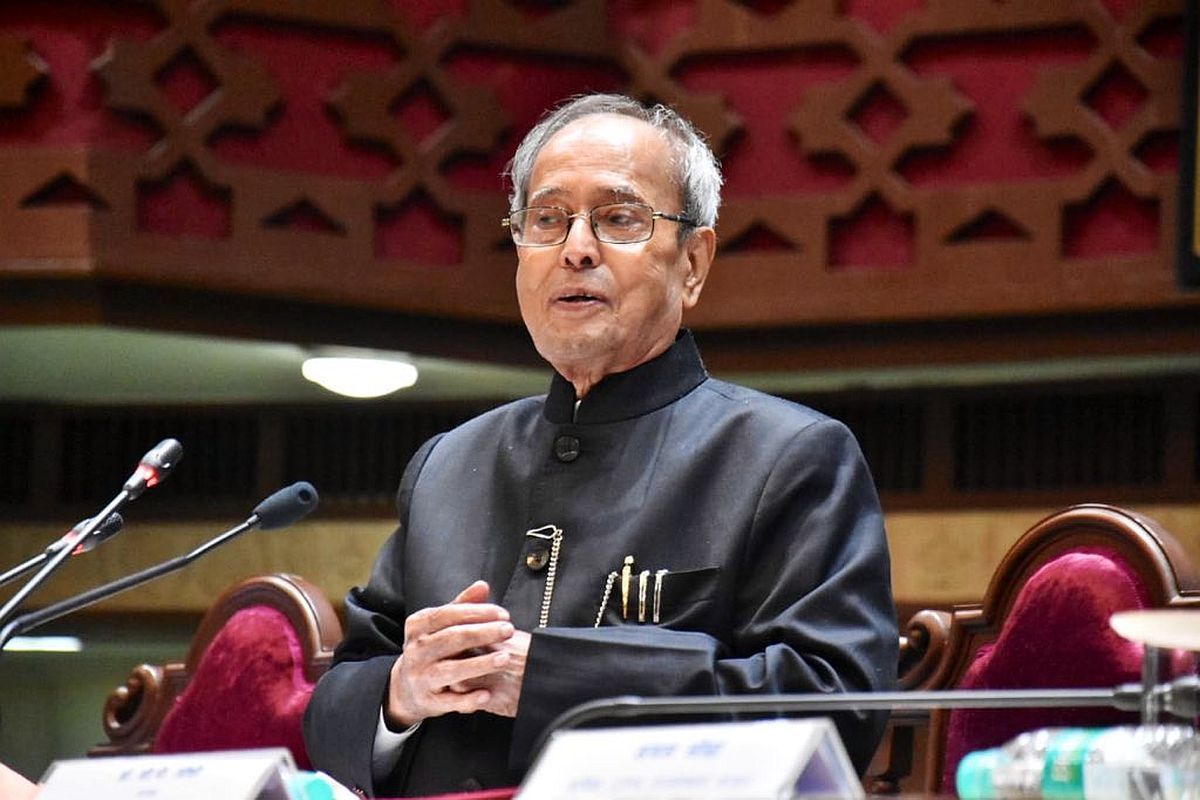‘One Nation One Election’ will damage parliamentary democracy: AAP
AAP leader Pankaj Kumar Gupta made the statement in response to High-Level Committee (HLC) on 'One Nation One Election' secretary Niten Chandra’s letter to party’s national convenor
A day before demitting office, Mukherjee said “there are divergent strands in public discourse. We may argue, we may agree or we may not agree. But we cannot deny the essential prevalence of multiplicity of opinion. Otherwise, a fundamental character of our thought process will wither away.”

Former President Pranab Mukherjee. (Photo: Twitter | @CitiznMukherjee)
In his last speeches, late President Pranab Mukherjee wasn’t only overwhelmed by a rainbow of memories, he was equally concerned about the future of India.
In his farewell address to the nation on 24 July, 2017, he said “The soul of India resides in pluralism and tolerance.”
A day before demitting office, Mukherjee said “there are divergent strands in public discourse. We may argue, we may agree or we may not agree. But we cannot deny the essential prevalence of multiplicity of opinion. Otherwise, a fundamental character of our thought process will wither away.”
Advertisement
Mukherjee never missed an opportunity to make a point. He said “The multiplicity in culture, faith and language is what makes India special. We derive our strength from tolerance. It has been part of our collective consciousness for centuries.”
He was worried about violence and unnecessary conflicts. He said that “the capacity for compassion and empathy is the true foundation of our civilisation. But every day, we see increased violence around us. At the heart of this violence is darkness, fear and mistrust.”
“We must free our public discourse from all forms of violence, physical as well as verbal. Only a non-violent society can ensure the participation of all sections of the people, especially the marginalized and the dispossessed in the democratic process. Power of non-violence has to be resurrected to build a compassionate and caring society,” Mukherjee said.
Giving his final diagnosis of the situation in the nation, he relied on his half a century of experience in public life, and said: “Our founding fathers, with the adoption of Constitution, set in motion powerful forces that liberated us from the stranglehold of inequity in gender, caste and community along with other fetters that had tied us for too long. It inspired a social and cultural evolution which put Indian society on the track to modernity.”
Addressing members of Parliament who gave him a fond farewell in the Central Hall of Parliament House on 23rd July, 2017, President Pranab did not omit to make some vital points on the Indian Constitution, or the working of the Parliamentary democracy.
He recalled: “On 26 January 1950, the Constitution of India came into effect. In a remarkable display of idealism and courage, we the people of India gave to ourselves a sovereign democratic republic to secure to all its citizens justice, liberty and equality.”
On the functioning of the Parliamentary democracy, he said: “Hon’ble Members, in those days, both the Houses of the Parliament used to reverberate with animated discussions and illuminative and exhaustive debates on social and financial legislations.”
“I internalised the essence of what Pandit Jawaharlal Nehru had said,” he said, and quoted the first Prime Minister as saying “There has always to be balancing of change and continuity. The system of parliamentary democracy embodies these principles of change and continuity. And it is up to those who function in this system, members of the House and the numerous others who are part of this system, to increase the pace of change, to make it as fast as they like, subject to the principle of continuity. If continuity is broken, we become rootless and the system of parliamentary democracy breaks down.”
Advertisement